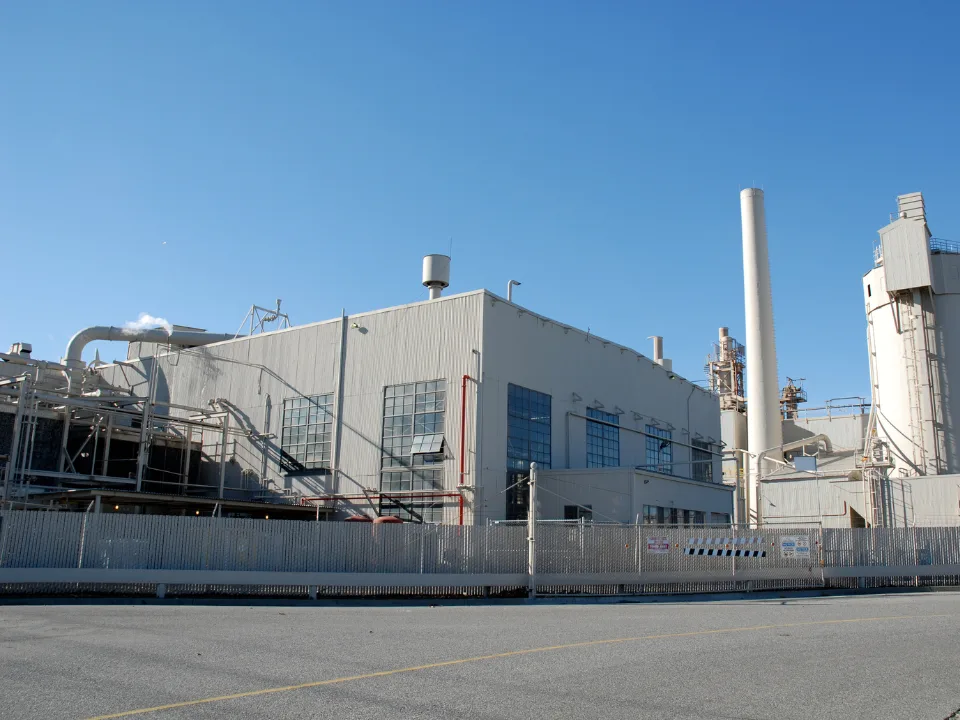Brookfield Accuses FDIC of ‘Secret’ Auction in Signature Loan Bid
Plus: A bipartisan Senate investigation seeks to understand how private equity investment has negatively impacted healthcare service.
Together with
Good morning. Today is the last day to secure your CRE Daily holiday sweaters and ensure they arrive before Christmas. Perfect for last-minute gifts for your MD, colleague, or clients! Save 20% with code “RATECUTS”.
Today’s issue is brought to you by Redwood Living—diversify your portfolio with passive investments in the booming BTR market.
👋 First time reading? Sign up.
🎁 Want free merch? Share this.
Market Snapshot
|
|
||||
|
|
*Data as of 12/12/2023 market close.
SECRET AUCTION
Brookfield: FDIC Ran Covert Sales Process for Signature Bank Loans
Getty Images/iStockphoto
Brookfield Property Group has voiced concerns and threatened legal action over the FDIC’s handling of the sale of Signature Bank’s loan assets. According to a Financial Times report, Brookfield alleges that the FDIC conducted a secretive sales process, potentially favoring a lower bid from another group.
“Secret” auction: The controversy centers on selling $4.4 billion in loans linked to New York City’s affordable housing, where Brookfield is a leading bidder. They claim the FDIC is favoring a lower bid from Related Fund Management and its non-profit partners, Community Preservation Corporation and Neighborhood Restore. In partnership with Tredway, Brookfield bid more than 80 cents on the dollar for a portion of these loans, while Related’s bid reportedly only 69 cents on the dollar. This discrepancy has led Brookfield’s Chief Investment Officer, Lowell Baron, to consider citing potential legal violations.
Between the lines: This sale is unique due to the FDIC’s dual objectives: minimizing losses to its insurance fund and preserving affordable housing, as required by law. This sale is complicated by New York’s complex rent laws, with a significant part of Signature’s rent-stabilized loan book possibly being financially distressed. Controversy has also arisen from the Adams administration’s support for Related’s bid, despite the FDIC’s earlier stance of not being influenced by political support or partnerships with non-profits.
Why it matters: In this sale, the FDIC is auctioning not just loans but also equity stakes in properties, a decision aligned with their goal of maintaining housing affordability for low- and moderate-income individuals. The FDIC’s strategy includes forming joint ventures where it will hold a majority equity interest, ensuring the continued availability and affordability of these residential properties, thus fulfilling its promise.
➥ THE TAKEAWAY
What happens next? The outcome of this auction could significantly impact the valuation of non-related properties, thus affecting the broader commercial real estate market. The majority of the $33 billion commercial real estate loan portfolio at stake comprises multifamily properties in New York City, many of which are rent-stabilized or controlled. The FDIC’s approach, focusing on joint ventures and affordable housing preservation, could set a precedent in how such assets are handled in future transactions.
TOGETHER WITH REDWOOD LIVING
Multifamily Development Stays Strong in Midwest Markets for Redwood
Developer and manager of single-story build-to-rent apartment homes, Redwood Living, Inc., is looking forward to 2024 with confidence. Throughout Q3 and Q4 of 2023, the company has received media attention for its newest rental neighborhoods.
By focusing development efforts on their signature two-bedroom, two-bathroom apartments with an attached garage in strategic Midwest and Carolinas locations, Redwood has built a solid foundation over the last 30 years.
Heading into the new year, Redwood has its eyes set on even more growth. As they expand to Nebraska and deeper into their current markets, this developer offers investors the opportunity to diversify their portfolios with a passive investment still in the BTR market.
TRENDING HEADLINES
-
Reviving Baltimore: Baltimore City Mayor Brandon Scott announced a $3B investment to revive vacant homes, with $300M from tax increment financing bonds.
-
Inflation holds steady: Consumer prices increased 0.1% in November, slightly below expectations, with a yearly rate of 3.1%, easing pressure on the Federal Reserve.
-
Building bridges: Churchill Real Estate, which manages $7.4B in AUM, sells a minority stake to Mitsubishi UFJ Trust and Banking Corp., allowing for continued growth.
-
Trophy asset triumph: Accesso has extended its CMBS loan on the IDS Center in Minneapolis, a Class A office tower, providing time to seek longer-term financing.
-
Storage units: Blumenfeld Development buys a 159,000-square-foot Flushing self-storage site from LSC Development for $72 million, previously sold for $21 million in 2016.
-
Bid of the day: Arkhouse Management and Brigade Capital Management are willing to buy out Macy’s (M) for $5.8B, sparking a debate between the value of retail stores.
-
Chain store contraction: The number of chain stores in NYC fell 3.4% this year, with a total of 7,700 chain stores citywide in November 2023.
-
Reimagining old walls: The former Windsor Senior Living building in the Museum District has been sold for $10M for a new 253-unit residential development.
-
Dollar store deals: The average cap rate for dollar stores grew from 6.34% to 6.51% in Q3, according to a new B+E report.
-
Industrial vacancy: Rising industrial sector vacancy rates can be attributed to slowing demand and new supply, according to a Cushman & Wakefield report.
-
Office conversion revolution: GW Properties and The Drake Group plan to convert a mostly vacant office complex near Old Orchard mall in Skokie, IL, into 245 apartments in a $90M project.
-
Marketing in crisis: Companies in the struggling CRE industry are cutting bloated marketing budgets and laying off marketing professionals.
-
Apartment avalanche: An apartment building collapsed in the Bronx; fortunately, no deaths or injuries were reported. But in a city as old as NYC, more collapses are only to be expected.
-
Delinquency dilemma: Commercial mortgage delinquencies in the US increased for the third consecutive month in Q3, driven by higher rates and uncertainty over property values.
-
We’re building: In this week’s Q2 2024 earnings call, founder and CTO Larry Ellison announced the company’s expansion plans, including enlarging 66 current cloud data centers and constructing 100 new ones.
BIPARTISAN PROBE
Bipartisan Senate Probe Targets America’s Biggest Hospital Landlord
Senators from both major U.S. political parties have initiated an investigation into the impact of private equity in the healthcare sector, focusing particularly on Medical Properties Trust (MPT), the country’s largest hospital landlord.
In focus: The investigation began in March, targeting Apollo Global Management and Lifepoint Health, which owns numerous hospitals, including one involved in a notable patient assault case. It has now broadened to include scrutiny of MPT’s business dealings. The lawmakers are investigating how these firms acquire healthcare businesses, including hospitals, and then burden them with debt, potentially affecting the quality of care and increasing costs.
Unfair advantage: A key focus of the probe is MPT’s business strategy, which involves buying hospital real estate from private equity-owned providers. MPT’s largest tenant, Prospect Medical, was owned by Leonard Green & Partners until recently. The Senate Committee on the Budget is requesting documents to understand MPT’s role in a 2019 sale-leaseback deal involving MPT, Lifepoint, and Apollo. However, MPT has been accused of not fully cooperating with the investigation, failing to provide requested documents and information.
Asking for trouble: The investigation adds to the woes of MPT, the largest hospital landlord in the country. Hospital closures and a $42M loss in Q2 have affected the company’s revenues and stock price. MPT also faced allegations of not disclosing regulatory obstacles to a deal with Prospect. The company plans to divest or sell stakes in hospitals over the next 12 months to cover debt.
➥ THE TAKEAWAY
One to follow closely: PE’s impact on healthcare cannot be understated and continues to raise legitimate concerns for patients. The bipartisan investigation seeks to uncover the adverse effects of cost-cutting on the quality of care, taxpayer costs, and death rates. It also amplifies the challenges faced by MPT, including ongoing financial struggles and allegations of deal non-disclosure.
QUICK HITS
📖 READ: The HUD’s Office of the Assistant Secretary for Housing has posted specific adjustment factors for certain operating costs for 2024 and beyond on federalregister.gov.
🎧 LISTEN: Avison Young’s Head of Tri-State Investment Sales, James Nelson, and Ariel Property Advisors’ Founder, Shimon Shkury, talk NYC’s investment sales market amidst rising rates and slowed deal flow.
CHART OF THE DAY
In November, U.S. inflation continued to slow, indicating the effectiveness of the Federal Reserve’s rate hikes. The Consumer Price Index (CPI) rose 3.1% year-over-year, slightly down from October’s 3.2%, but above the Fed’s 2% target. Core inflation remained steady at 4%, with energy prices, particularly gas, dropping significantly. The shelter index, a major contributor to overall inflation, grew by 6.5%, its slowest in over a year. Excluding shelter, consumer prices increased by only 1.4% annually.
What did you think of today’s newsletter? |





















